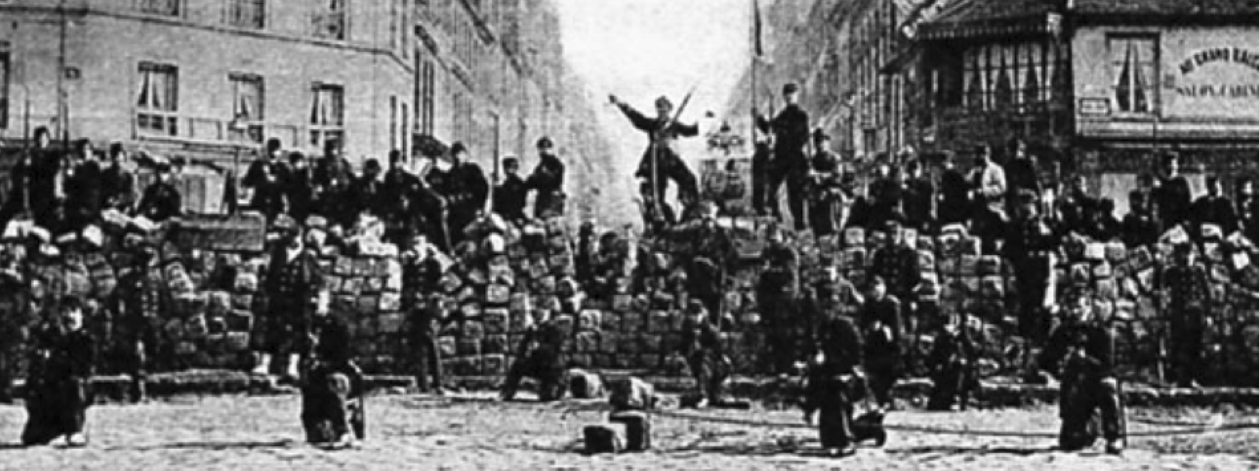PANEL AND DISCUSSION AT THE RADICAL DEMOCRATIC CITIZENSHIP CONFERENCE IN ABERDEEN
Co-operation in Mesopotamia will be hosting and participating in a panel discussion on various aspects of the Rojava Revolution in Northern Syria at the Radical Democratic Citizenship Conference on 3-4 September, 2018 at the University of Aberdeen in Scotland.
This conference on radical democratic citizenship marks the 50th anniversary of the global wave of protests in 1968, when people occupied workplaces and public spaces, collectively demanding changes in policies and calling for a shift in politics. Movements aimed variously to resist regimes deemed authoritarian and imperialist, fight economic and political elites, dismantle the exploitative forces of capitalism, challenge norms around the role of women and sexuality, and tackle racism and gender discrimination. Despite the differences among them, they shared a “radical approach to citizenship” in that they sought to open spaces for political action beyond the narrow margins set by states as well as, outside the Soviet Bloc, challenging the subordination of states to the interests of the market.
Furthermore, and echoing the Latin term radix (roots), their citizenship was radical in that activists looked to highlight viable alternatives to the status quo, across the economic, political, and social spheres, demonstrating that these alternatives could be generated by grassroots movements far removed from elite circles. “Radical” thus indicates firstly the pursuit of fundamental change or transformation of the economic and political landscape that, secondly, can be effected from the bottom-up (grass roots), and, thirdly, in a radical democratic manner.
Today, faced not only by ever-deepening inequality but also by the prospect of environmental disaster, the demand for radical change is as pressing as in 1968. Electoral democracy has been rolled out worldwide but with deficiencies ever more painfully apparent, while capitalism has if anything extended its hold over political and social institutions, turning citizenship into a form of consumption and even a commodity for investment and trade (“Citizenship by Investment”).
In response to the host of challenges, grassroots activists are charting a fresh wave of radical democratic citizenship across the world. Obvious examples are the Democratic Federation of Northern Syria (Rojava), the Jackson Co-operative, recuperated firms, De-Growth, eco-villages, Anti-University, Co-operative College, Occupy, Black Lives Matter, and Standing Rock. Many such movements are effecting radical and seemingly sustainable changes.
Co-operation in Mesopotamia is proud to be part of this exciting conference with the following contribution:
Revolution in the Cradle of Civilisation: panel and discussion on the Democratic Federation of Northern Syria (Rojava)
A panel of speakers on the new democratic system being built in Northern Syria / Rojava, with each presentation to focus on a different aspect of the revolution and the political thought and system that underpin it. The panel is to include both Kurdish and non Kurdish speakers, followed by questions and open discussion.
- A brief history of the Rojava Revolution – In the north of Syria a democratic, egalitarian, feminist and ecological revolution is taking place. What laid the foundations for the birth of this revolution? The new system of stateless self-governance is based on the political paradigm of Democratic Confederalism put forward by political philosopher and Kurdish leader Abdullah Ocalan. What does this look like in practice?
– Elif Sarican, MSc Social Anthropology at the LSE. UK Coordinator of Kurdistan Students Union. Activist of Kurdish Women’s Movement.
- Jin – Jiyan – Azadi! – Woman, Life, Freedom! – The main slogan of the Kurdish Women’s Movement illustrates that this is, above all, a women’s revolution. The revolution is not only an external one – against the state – but also an internal one – against the patriarchal mindset that enslaves women. How did the Women’s Movement develop its position and gain enough strength to challenge 5,000 years of patriarchy?
– Berfin Kurban, Jineoloji Committee, Kurdish Women’s Movement
- Co-operation in Mesopotamia – The economic aspect of the Rojava Revolution is based on transition to a co-operative economy. Having been built up from nothing, co-operatives now make up about 7% of the economy of Jazira – the largest of three regions that make up the Democratic Federation of Northern Syria (DFNS). 3% of Jazira’s economy is now based on autonomous women’s co-operatives – an astounding feat. The Solidarity Economy Association are aiming to build real solidarity and relationships between co-operative movements both here and in the DFNS. How?
– Jo Taylor, Co-operation in Mesopotamia project co-ordinator for the Solidarity Economy Association

